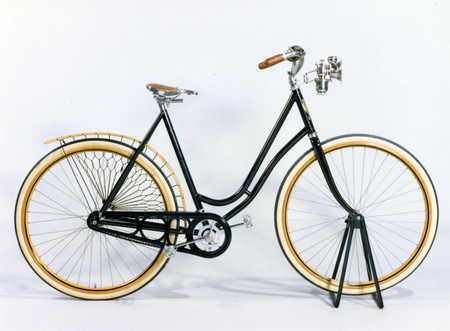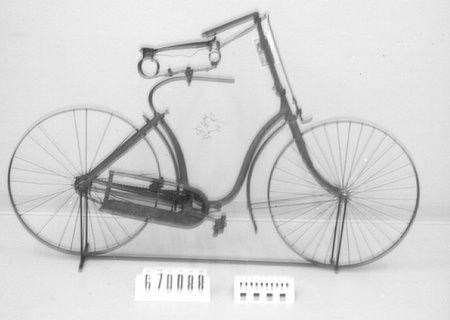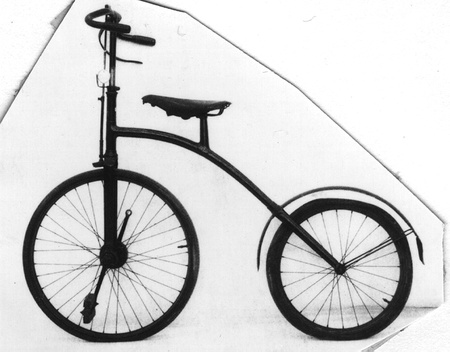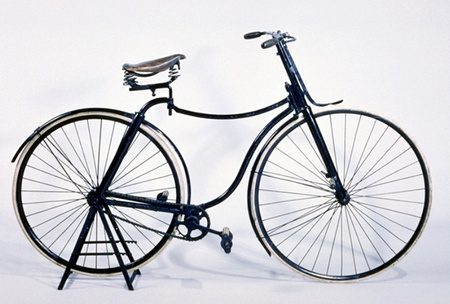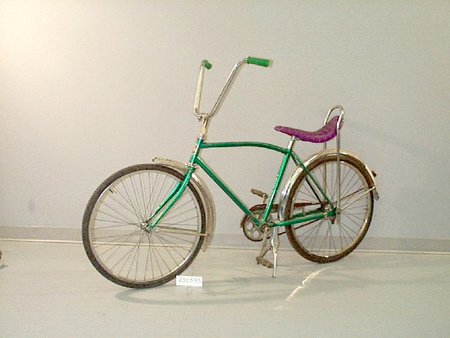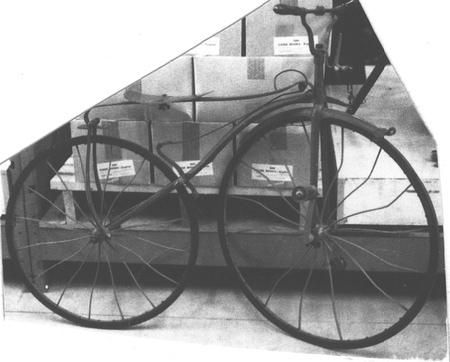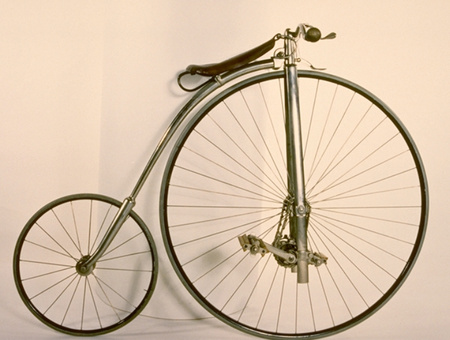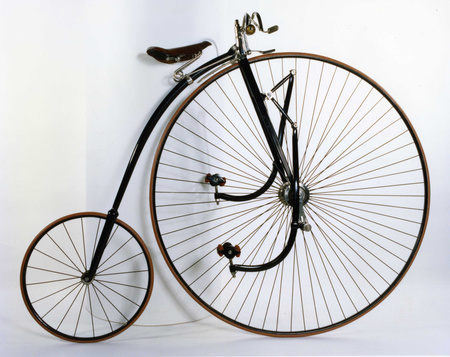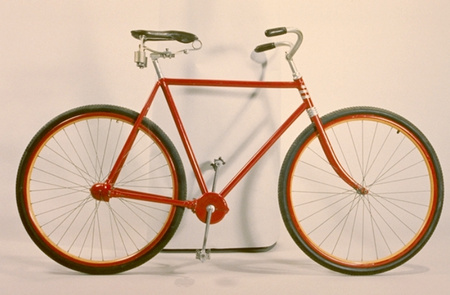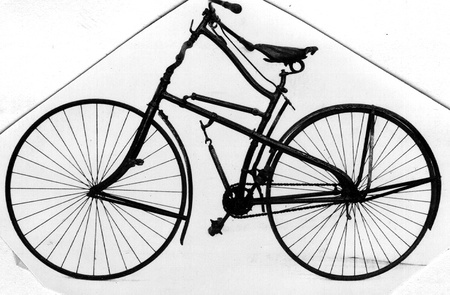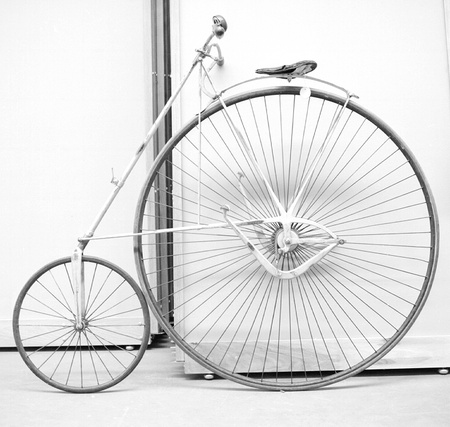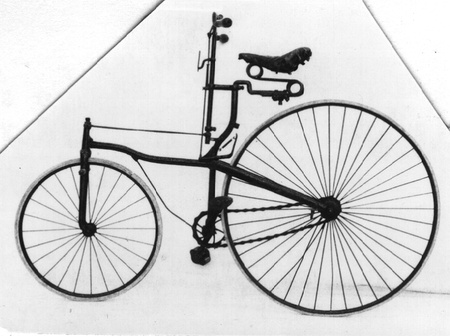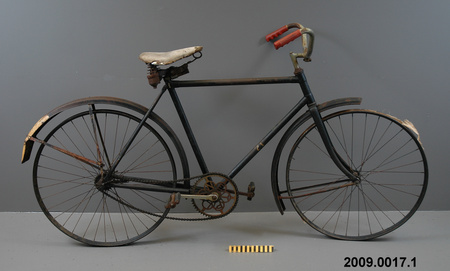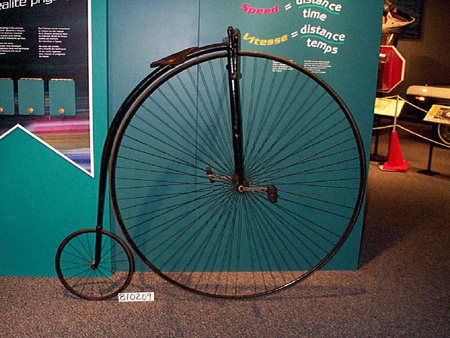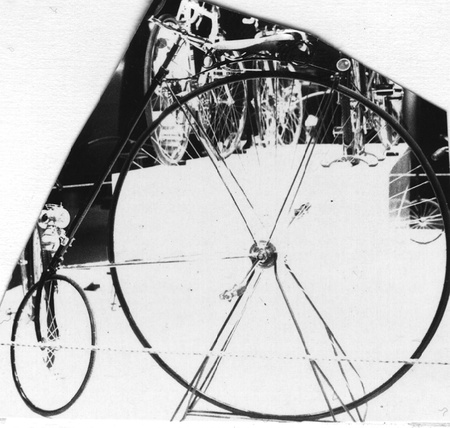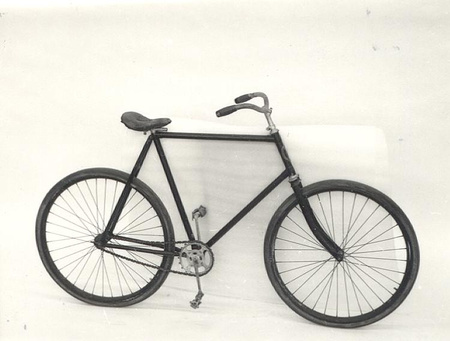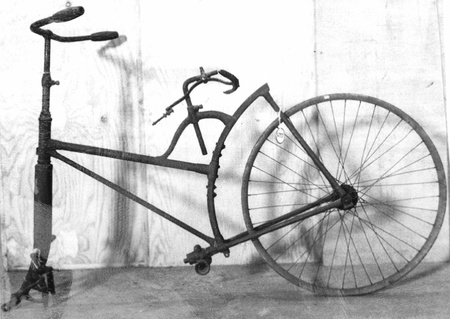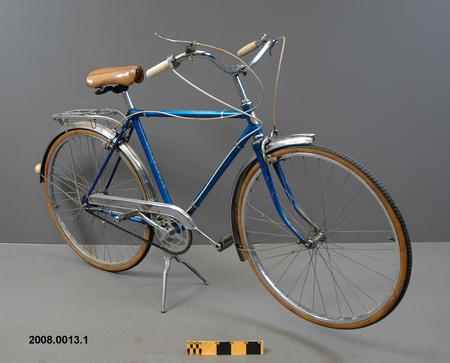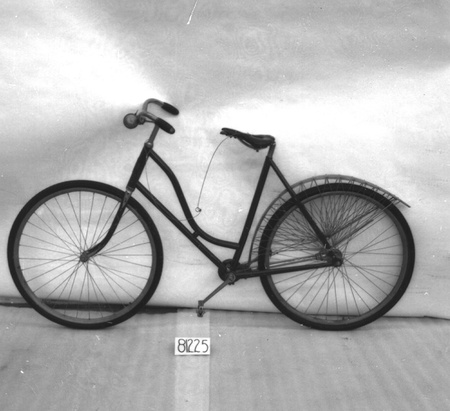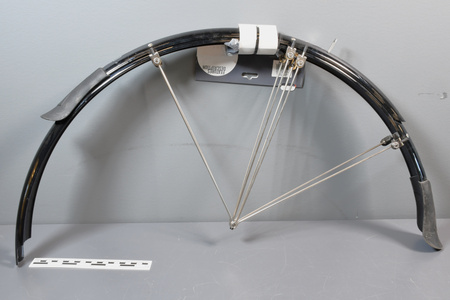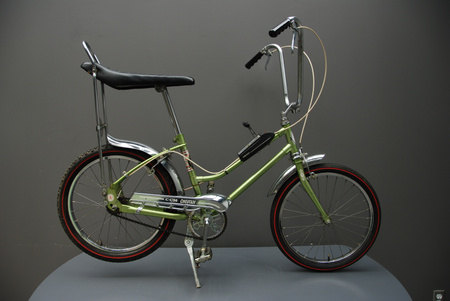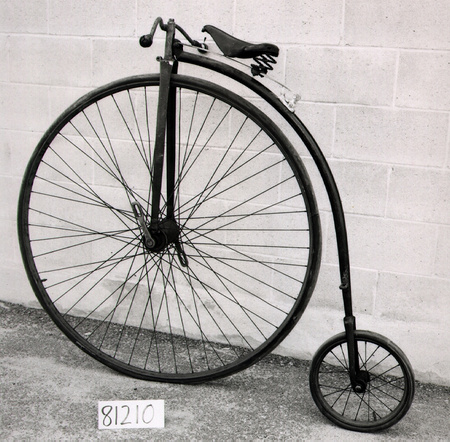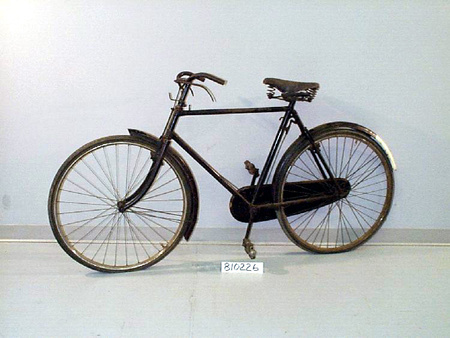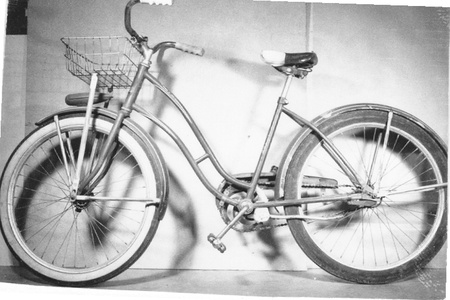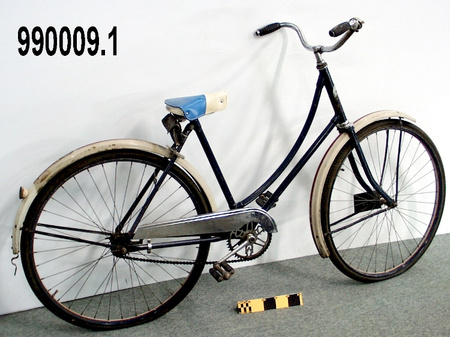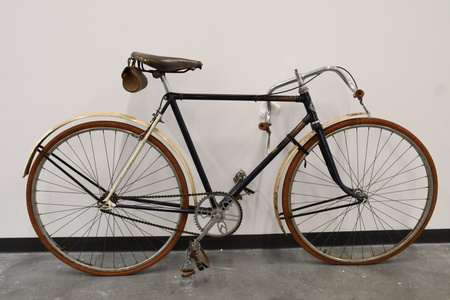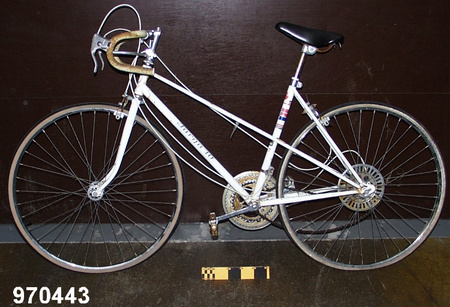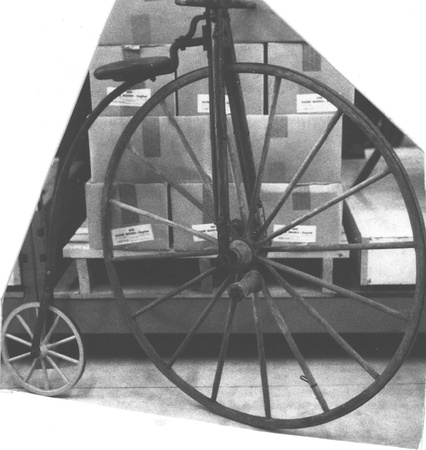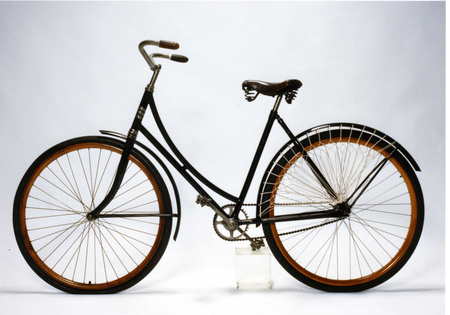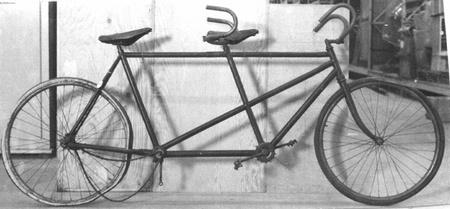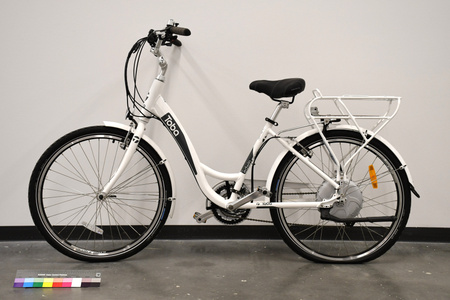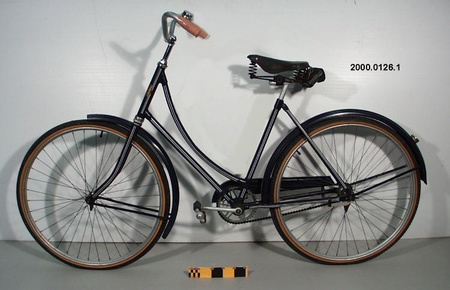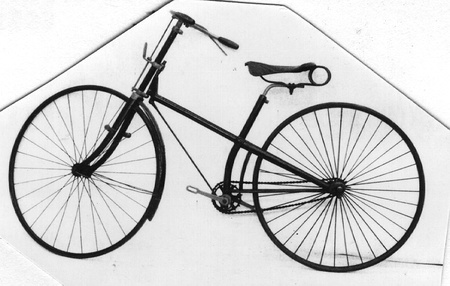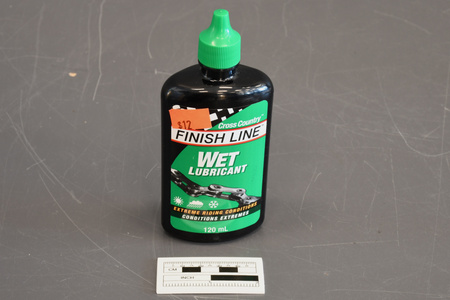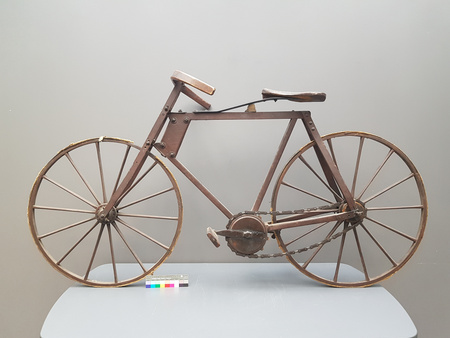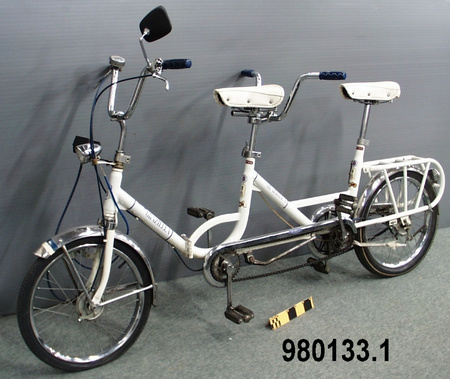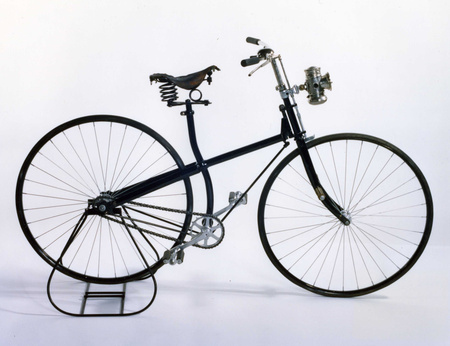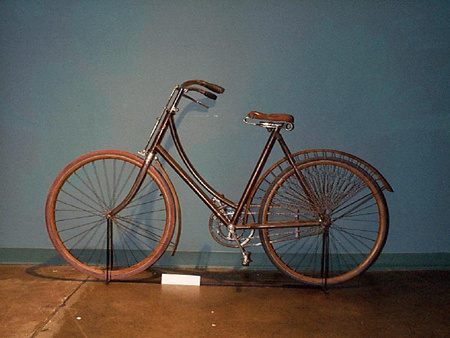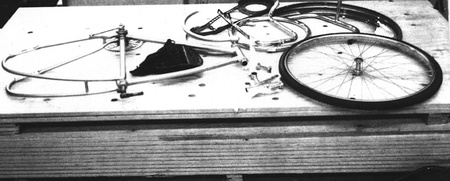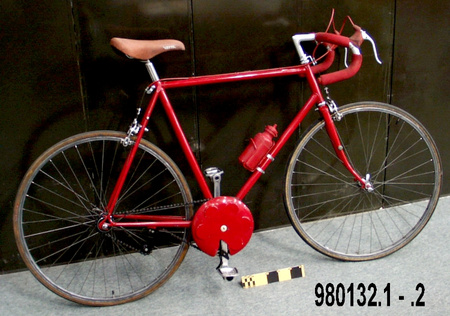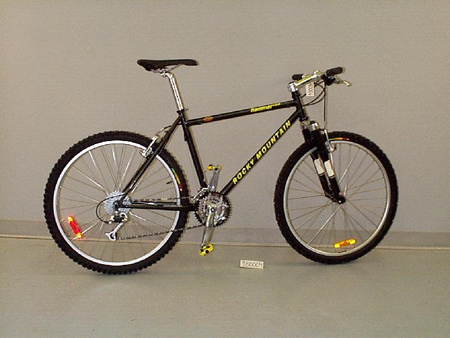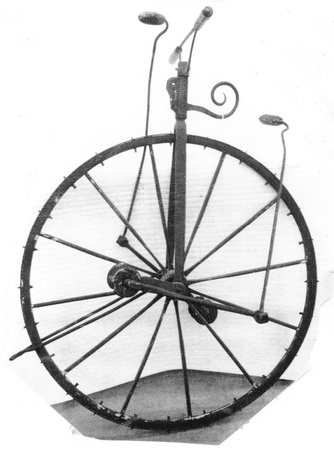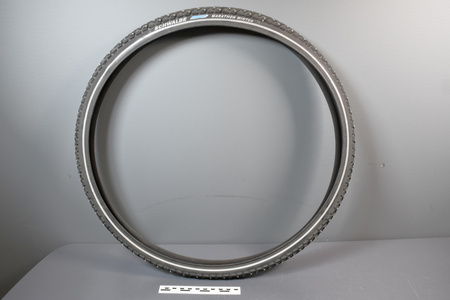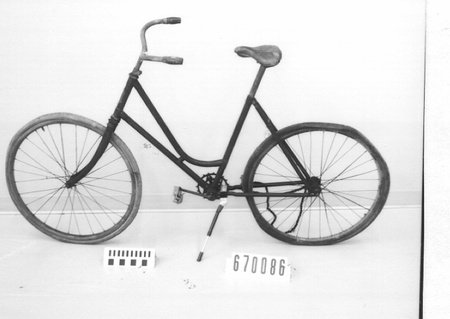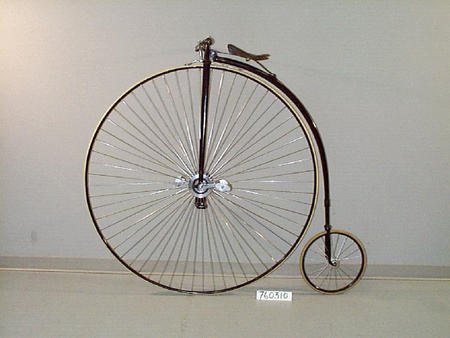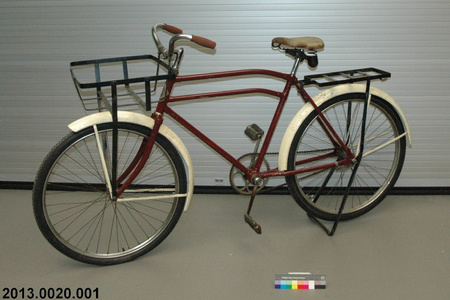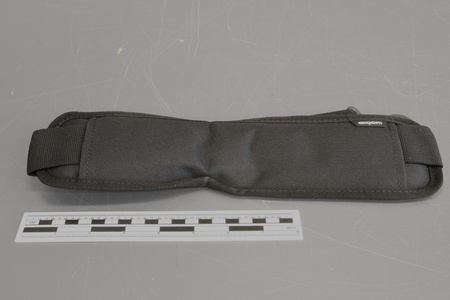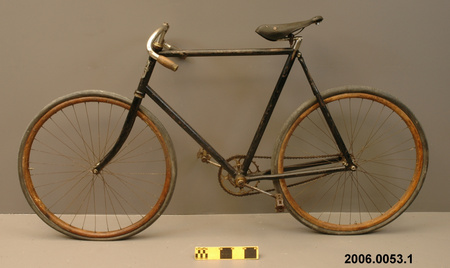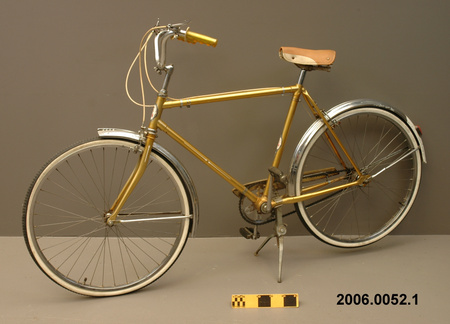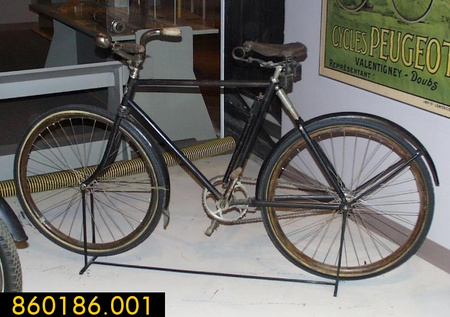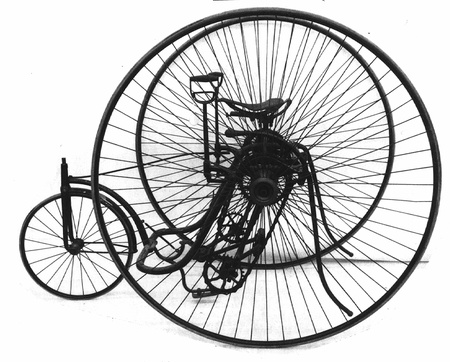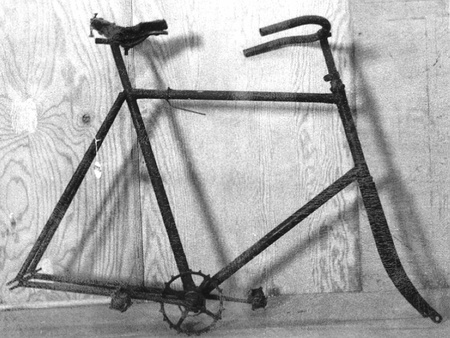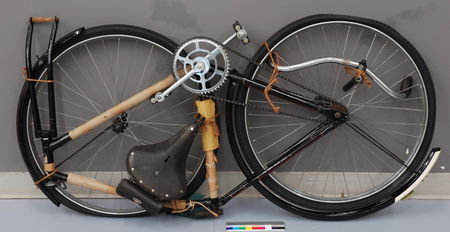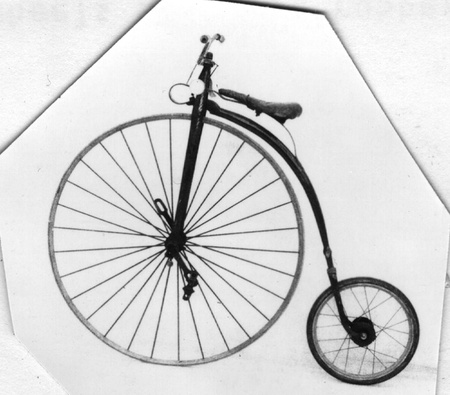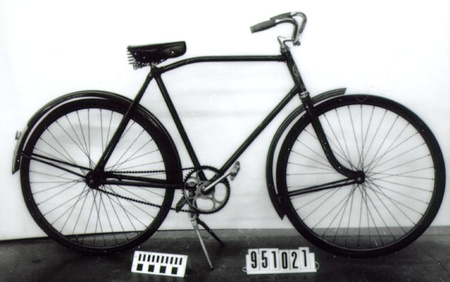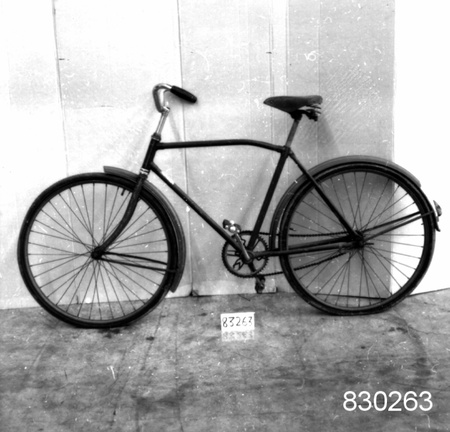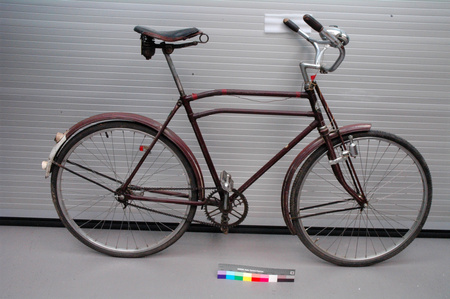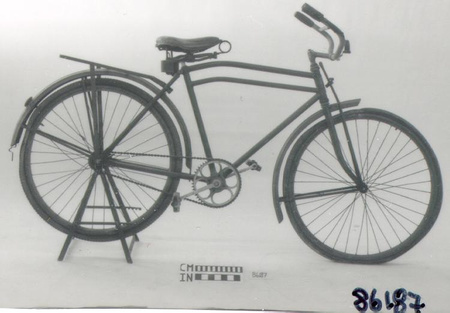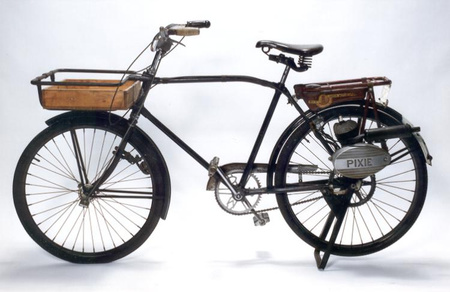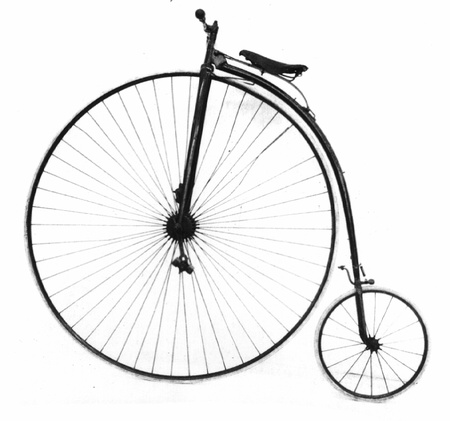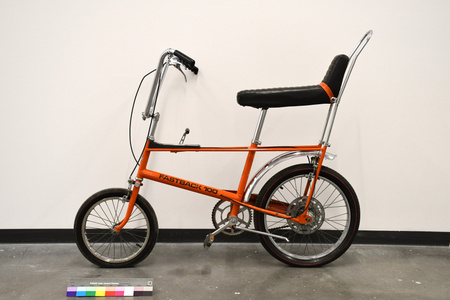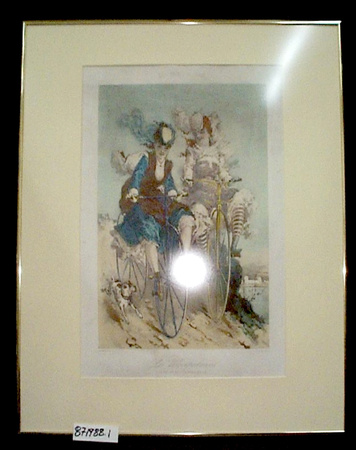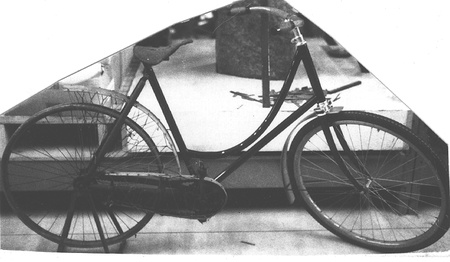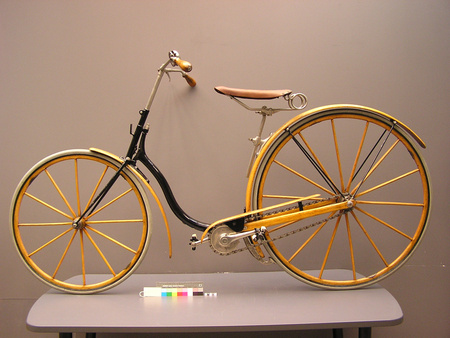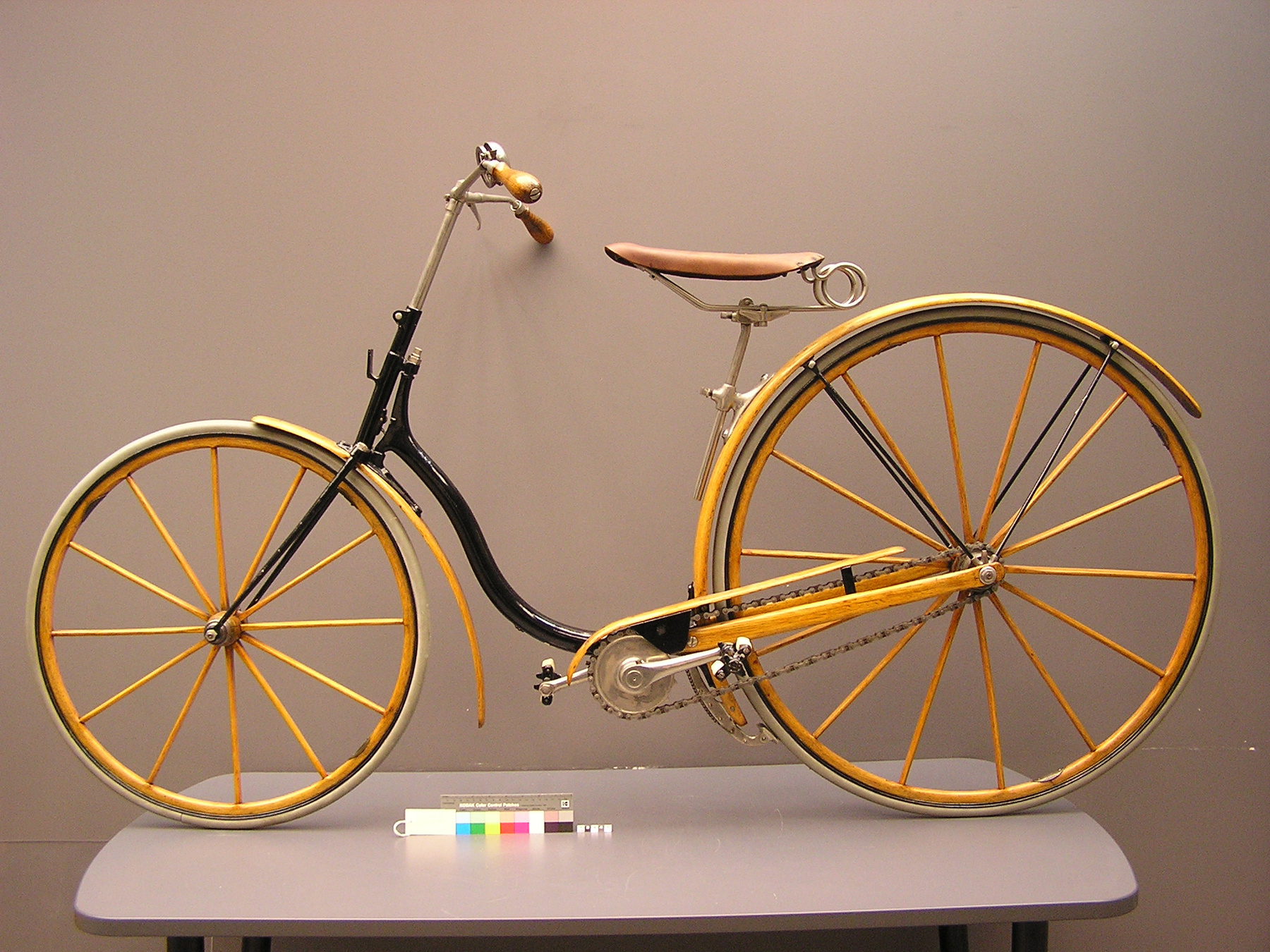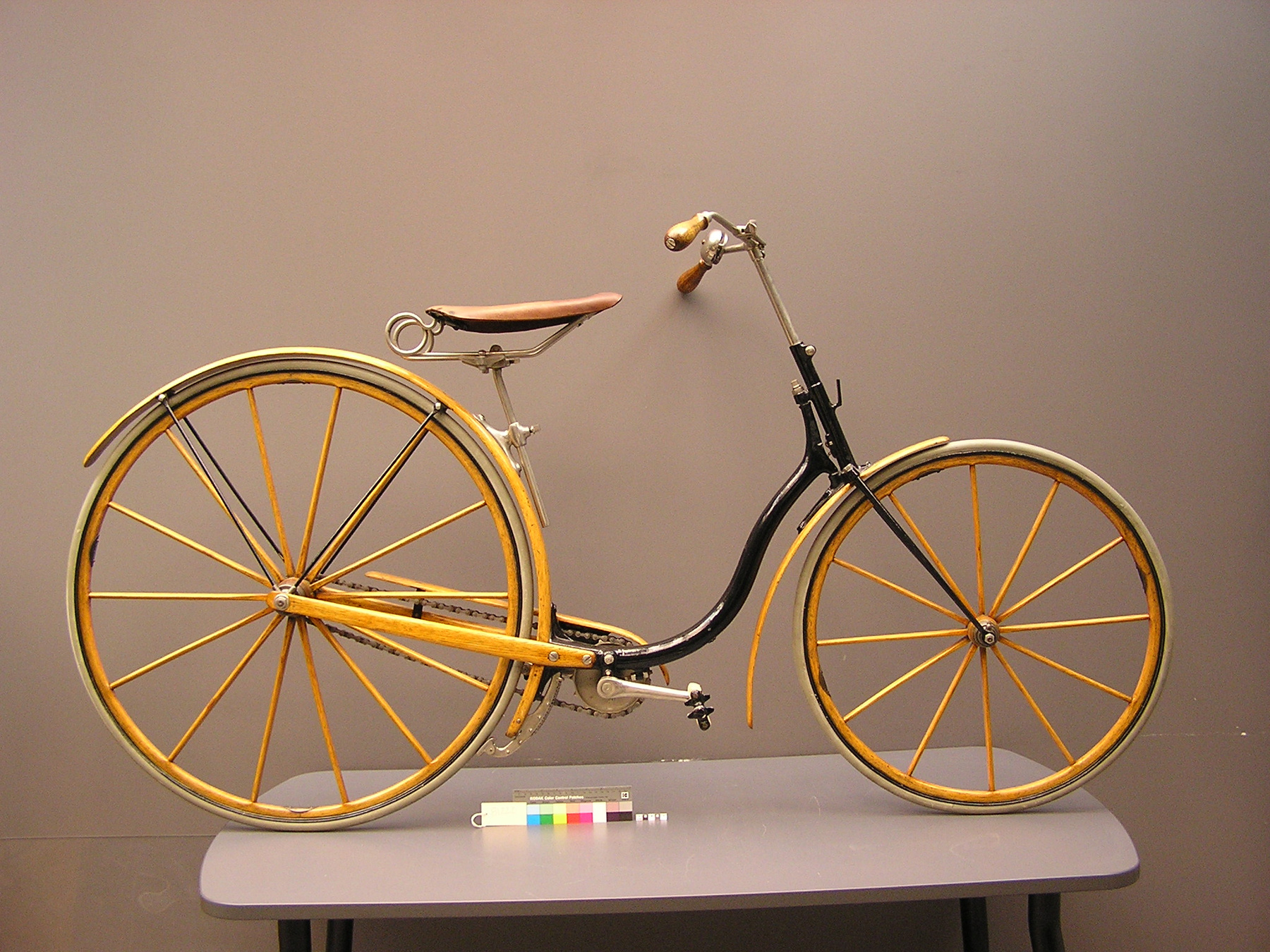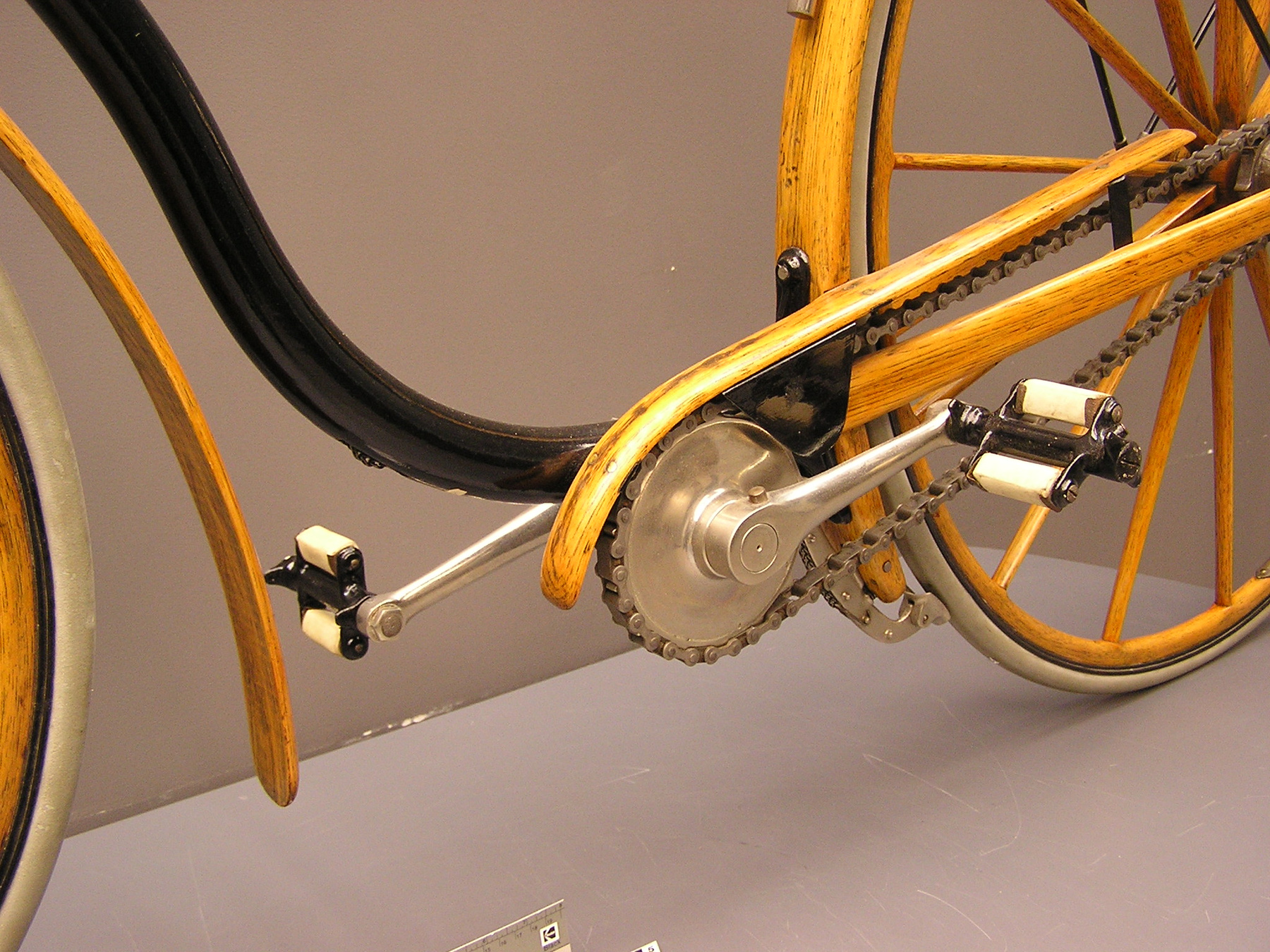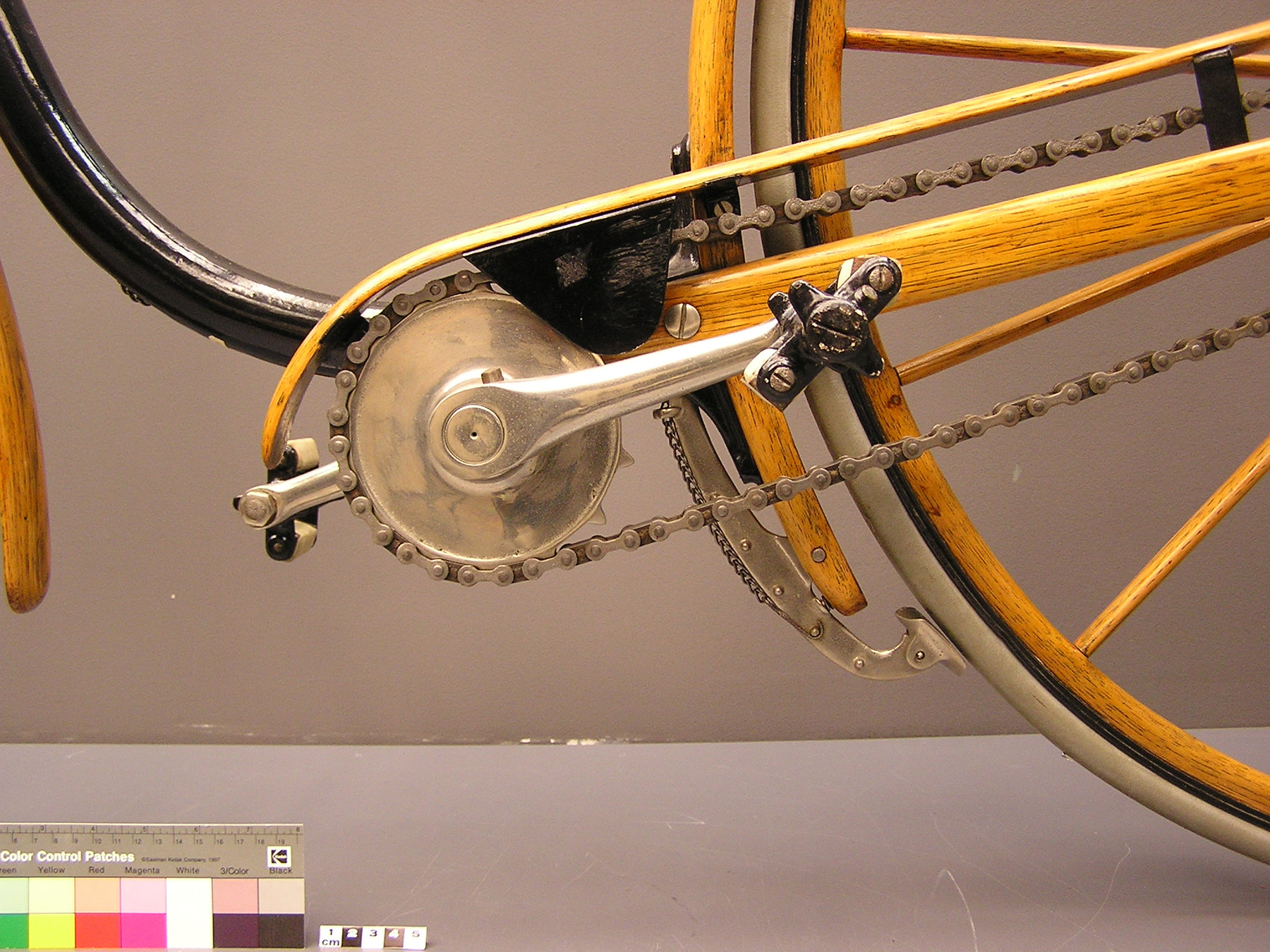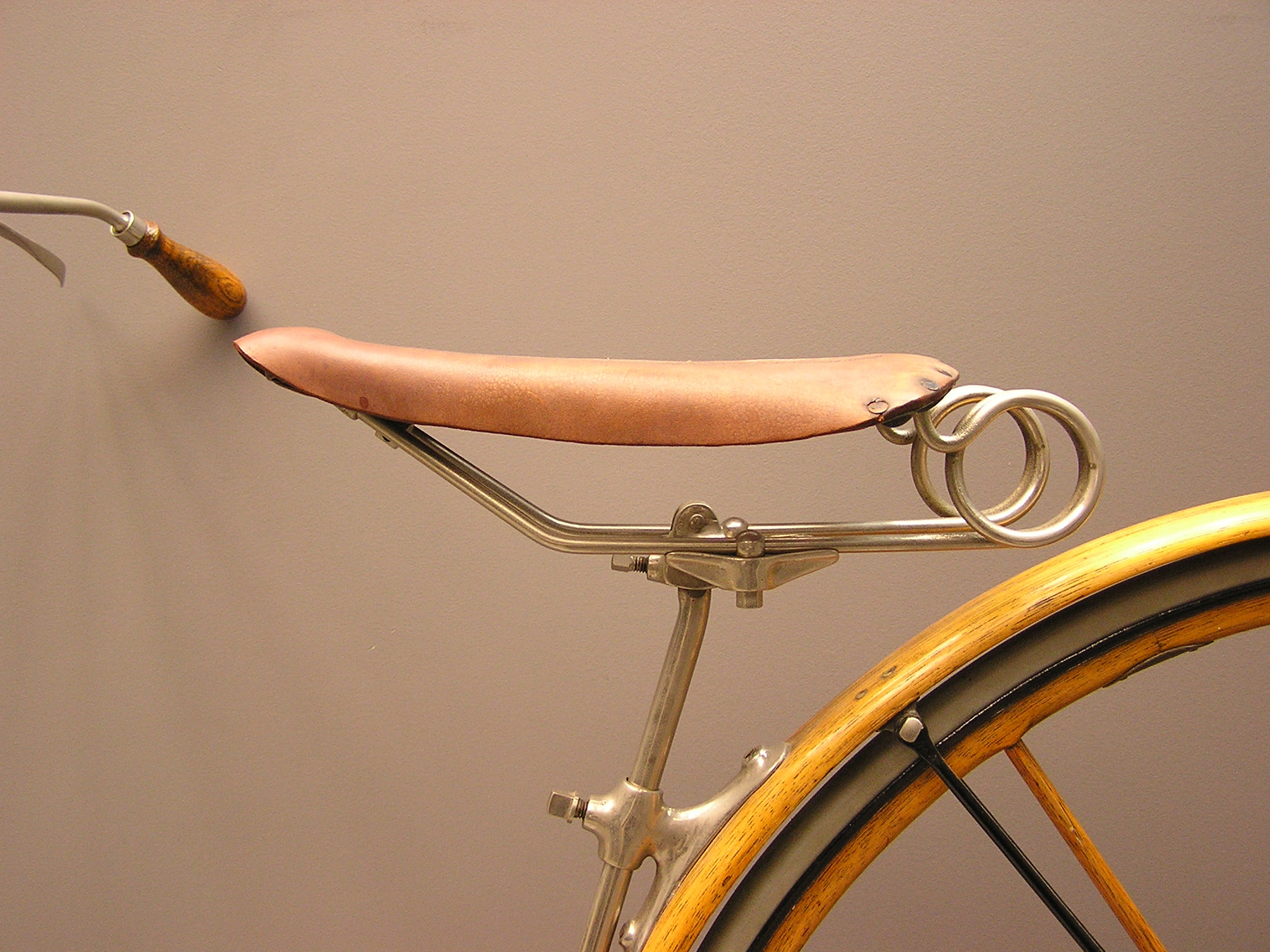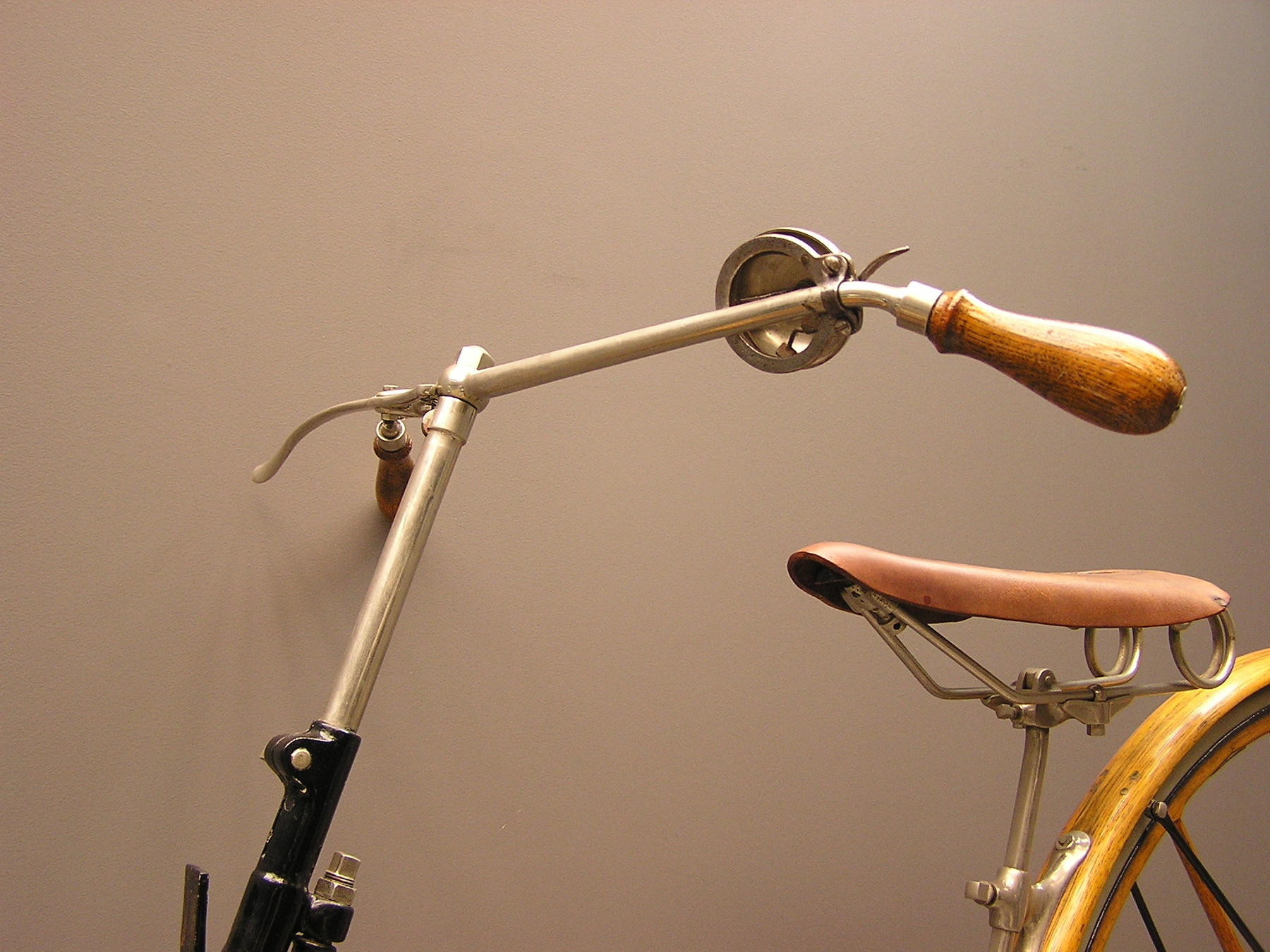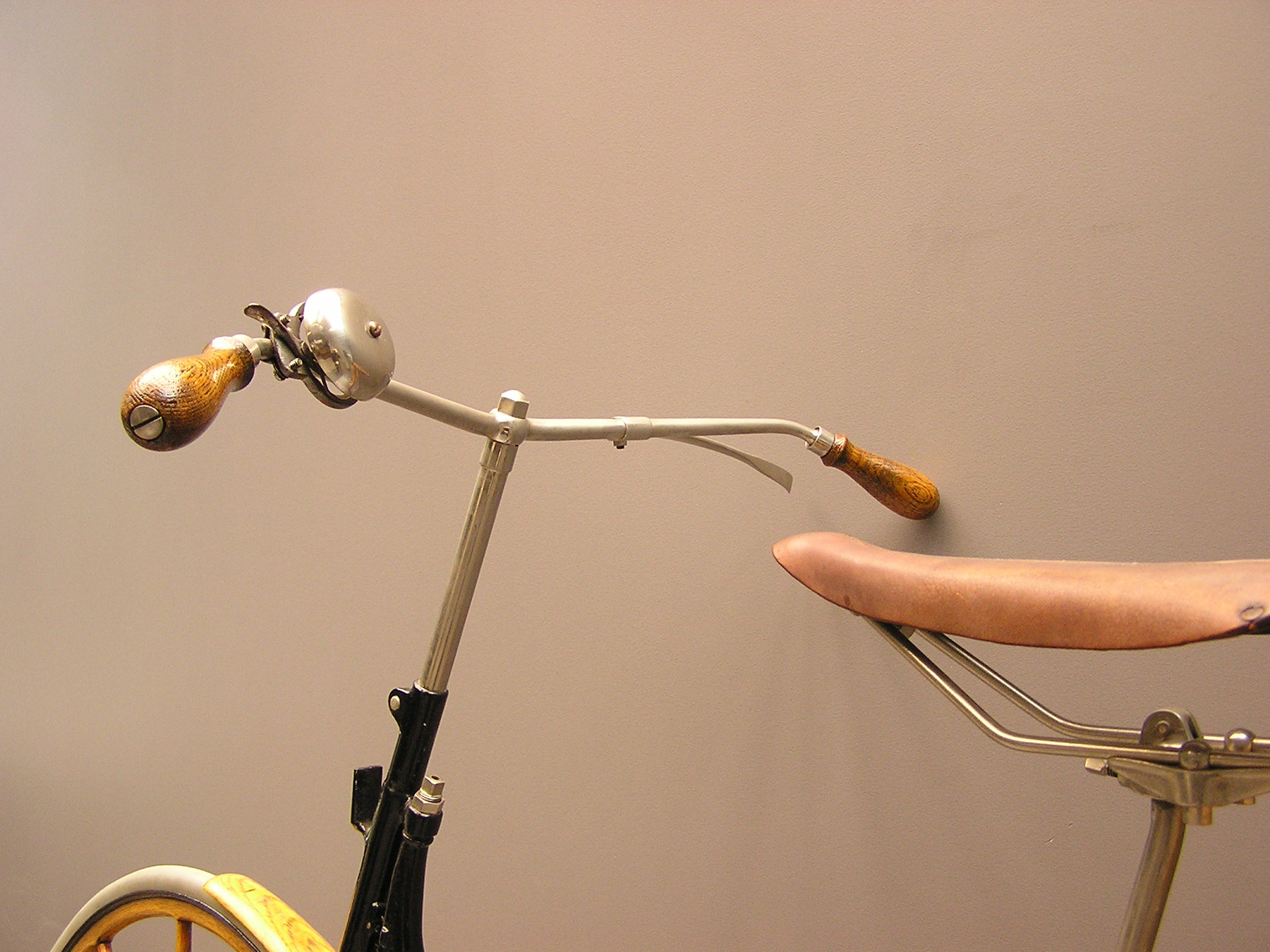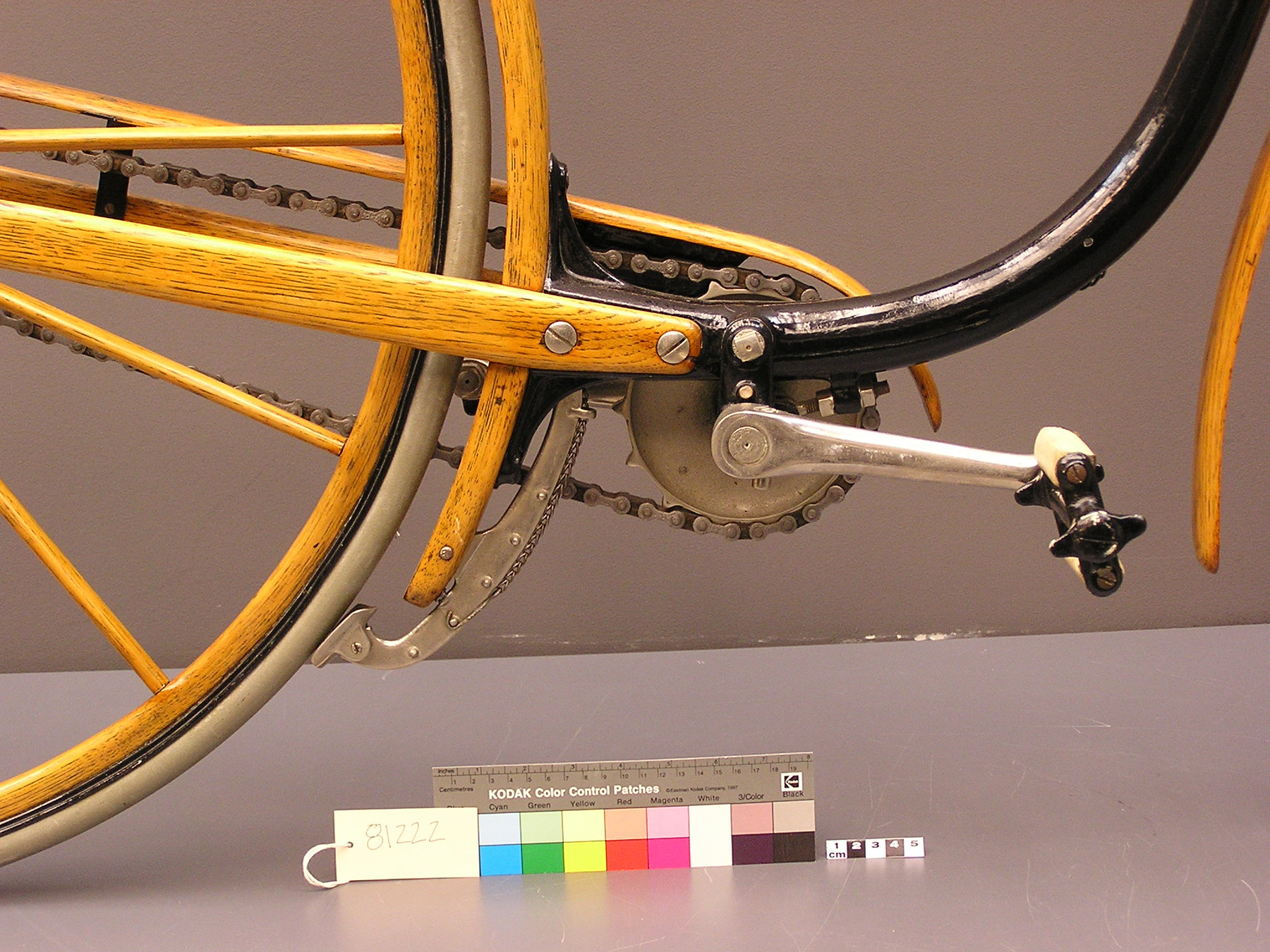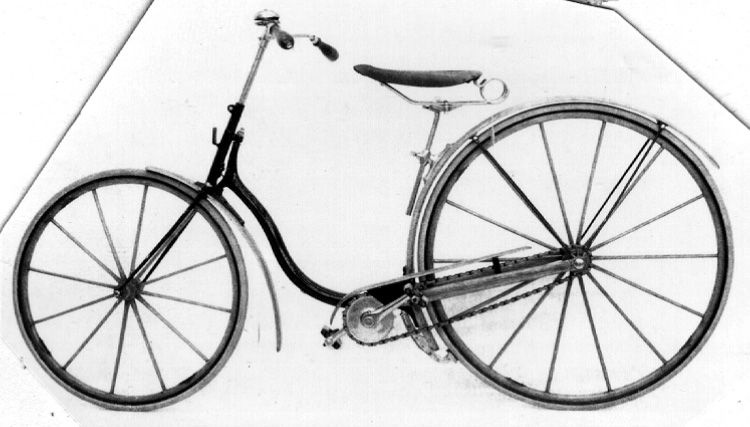Bicycle
Use this image
Can I reuse this image without permission? Yes
Object images on the Ingenium Collection’s portal have the following Creative Commons license:
Copyright Ingenium / CC BY-NC-ND (Attribution-NonCommercial 4.0 International (CC BY-NC 4.0)
ATTRIBUTE THIS IMAGE
Ingenium,
1981.0222.001
Permalink:
Ingenium is releasing this image under the Creative Commons licensing framework, and encourages downloading and reuse for non-commercial purposes. Please acknowledge Ingenium and cite the artifact number.
DOWNLOAD IMAGEPURCHASE THIS IMAGE
This image is free for non-commercial use.
For commercial use, please consult our Reproduction Fees and contact us to purchase the image.
- OBJECT TYPE
- safety/chain drive/drop frame
- DATE
- 1888–1893
- ARTIFACT NUMBER
- 1981.0222.001
- MANUFACTURER
- Elliott Hickory Cycle Co.
- MODEL
- Elliott Hickory
- LOCATION
- Newton, Massachusetts, United States of America
More Information
General Information
- Serial #
- N/A
- Part Number
- 1
- Total Parts
- 1
- AKA
- N/A
- Patents
- N/A
- General Description
- METAL HANDLEBARS, STEM & HEAD TUBE/ METAL DROP FRAME & FRONT FORKS/ METAL SEAT SUPPORT/ WOOD CHAIN STAY/ WOOD FENDERS & CHAINGUARD/ WOOD WHEELS W. METAL HUBS & RIMS AND SOLID RUBBER TIRES/ RUBBER PADS ON PEDALS/ LEATHER SADDLE
Dimensions
Note: These reflect the general size for storage and are not necessarily representative of the object's true dimensions.
- Length
- 187.0 cm
- Width
- 67.0 cm
- Height
- 103.5 cm
- Thickness
- N/A
- Weight
- N/A
- Diameter
- N/A
- Volume
- N/A
Lexicon
- Group
- Non-motorized Ground Transportation
- Category
- Cycles & cycling
- Sub-Category
- N/A
Manufacturer
- AKA
- Elliott
- Country
- United States of America
- State/Province
- Massachusetts
- City
- Newton
Context
- Country
- Unknown
- State/Province
- Unknown
- Period
- Unknown
- Canada
-
This machine is marketed for both men and women, suggesting gender neutrality of the bicycle. Wood was one of the most important industries of Canada at the time, which means that it is likely that the Canadian and American lumber industry benefited from demand in wooden materials for cycle making. In Canada, many women were beginning to participate in social activism. They championed for more genteel causes like access to higher education, female dress reform and bicycle-riding for women. More and more, women were mounting bicycles while the cycling world was dominated by masculinity. The bicycle craze is a good example of reactions to women who wished to pursue sports and recreation: bicycle riding was not acceptable for women due to the dominating presence of Victorian ideas about gender and ideal womanhood. Dress reform was a subject of great controversy, but women actively changed their attires to fit better for riding cycles, as skirts got shorter, and women increasingly wore bloomers and riding outfits for easier pedaling. Cette machine était introduite sur le marché pour les hommes et les femmes, donc c'est très probable le bicycle est unisexe. L'industrie du bois de sciage canadien a profité du bicycle grâce à sa conception. Au pays plusieurs femmes commençaient à participer au cyclisme comme forme d'activisme sociale pour de l'accès à des sports de recréation, une meilleure éducation et des changements au code relatif à la tenue vestimentaire. De plus en plus de femmes participait au cyclisme qui était un domaine dominé par la masculinité. L'idée d'utiliser une bicyclette était un défi qui repoussait les notions Victoriennes de fémininité et des stéréotypes fondés sur le gendre. Le plus gros défi était contre les changements vestimentaires. Les femmes portaient des modifications à leurs vêtements pour améliorer leur confort en conduisant les bicycles. Cette forme d'activisme a permis à leurs jupes devenir plus courte et les femmes ont même opté pour des culottes bouffantes pour augmenter la facilité de pédaler leurs bicycles. - Function
-
This artifact was used as a mode of transportation. It is also of the first safety bicycles with a major use of wood construction. Cet artefact est utilisé comme mode de transport. Il est aussi un des premiers bicycles sécuritaires fabriqué en bois. - Technical
-
The Hickory is an all-wood bicycle with solid rubber tires, metal seat support and springs, wood fenders and a wood-chain guard, wood wheels with metal hubs, rubber pads on pedals, and a leather saddle. This bicycle economizes steel and puts it in the most structurally important areas of the bicycle to disperse the rider’s weight and keep the machine strong. The machine features a wooden skirt guard, an attachment to cycles that became very popular in this era. As women mounted cycles more and more, chain guards were needed to stop their skirts from getting caught in the machine. Women’s clothing was still long and flowing at this time, and therefore this design helped make it accessible for women that wanted to conform to the dress that was most available at the time. Hickory wood was a popular material used in wood spokes, it was strong and light at the same time but prone to warping. It could bend to bear the load of the user, and so the machine was sturdy. Le modèle Hickory est un bicycle fait complètement en bois avec des pneus faits en caoutchouc, en banc et des ressorts en métal, des ailes et des carters de chaînes en bois, des moyeux en métal, des coussins sur les pédales en caoutchouc et un siège en cuir. Le bicycle économise du métal et l'utilise seulement aux endroits importants pour disperser le poids du coureur en maintenant la durabilité de la machine. Le bicycle a un garde-jupe en bois pour aider les femmes en assurant que leurs vêtements ne deviennent pas emmêlés dans la machine. Cette innovation a amélioré l'accessibilité pour les femmes qui voulaient conformer aux normes vestimentaires et quand même explorer le domaine du cyclisme. Le bois de caryer était un matériel populaire pour construire des rayons en bois pour des roues de bicycles. Le bois est léger et peut aider à distribuer le poids de l'utilisateur pour stabiliser la machine. Le bois à défaut du gauchissement par compte. - Area Notes
-
Unknown
Details
- Markings
- N/A
- Missing
- FRONT FENDER STAYS
- Finish
- WOOD PARTS - LIGHT STAIN & VARNISH/ HANDLEBARS, STEM, SEAT SUPPORT, SEAT SPRING & CRANKS - CHROMED/ HEAD TUBE, DROP FRAME, FRONT FORKS, BACK FENDERS STAYS & RIMS - PAINTED BLACK/ TIRES- GREY/ SADDLE- BROWN
- Decoration
- N/A
CITE THIS OBJECT
If you choose to share our information about this collection object, please cite:
Elliott Hickory Cycle Co., Bicycle, between 1888–1893, Artifact no. 1981.0222, Ingenium – Canada’s Museums of Science and Innovation, http://collection.ingenium.ca/en/id/1981.0222.001/
FEEDBACK
Submit a question or comment about this artifact.
More Like This
